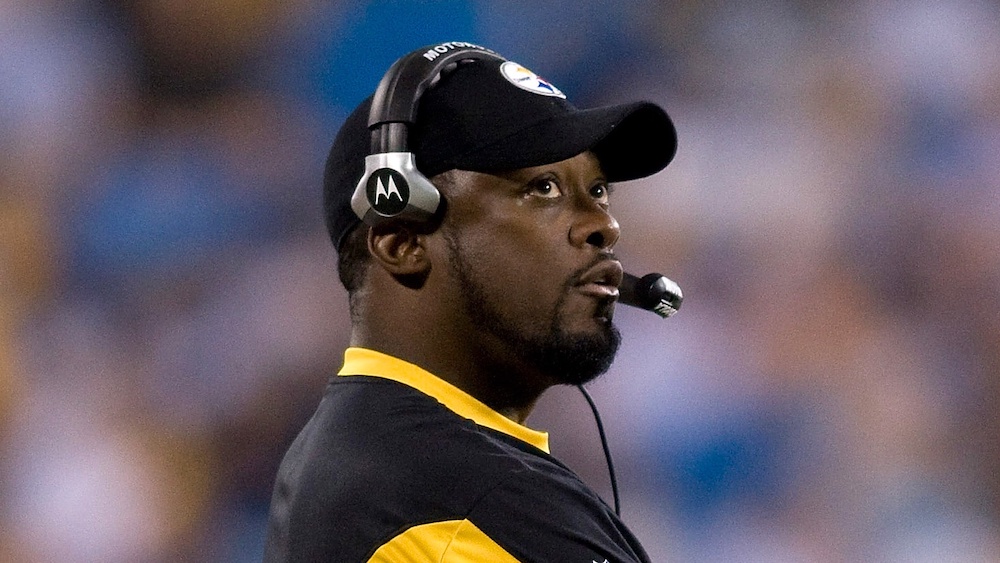If you’re interested in sharing your opinion on any cultural, political or personal topic, create an account here and check out our how-to post to learn more.
____
Thirty-two teams, one Black coach. Yes, as of January 17, 2022, there are 32 teams in the National Football League (NFL), yet only one Black head coach exists. Recently the Miami Dolphins fired their Black head coach, Brian Flores, after three seasons, despite ending this most recent season with an 8-1 finish. The prior season, Flores and the Dolphins ended with a 10-6 regular-season record, just missing the playoffs.
The Houston Texans followed up and fired their Black head coach, David Culley, after only one season, despite being tasked to win with his third-string quarterback — and still earning four wins. Currently, Mike Tomlin of the Pittsburgh Steelers is the only Black head coach in the NFL, never experiencing a losing season since being hired in 2007.
Ask yourself, how is it possible for a league to have only one Black coach, despite reporting 57.6% of their players in 2020 being Black?
When discussing with Black friends who are fans of the NFL, they seem to be aware of the current and past disparities of the NFL and act as if it is pure coincidence. They even go to the extent of validating the subjective narratives provided by teams for not selecting a Black head or firing one.
For example, in 2017, Black head coach Jim Caldwell was fired by the beleaguered Detroit Lions franchise after four seasons, despite having a 36-28 overall record. Caldwell achieved early success with the Lions, leading them to two playoff appearances within his first three seasons. Before hiring Caldwell, the Lions made only one playoff appearance in 14 years. In his last season, the Lions still held a winning 9-7 record, just missing the playoffs. Today, Caldwell has yet to be rehired by any NFL teams for a head coach or coordinator position.
Since Caldwell’s firing, the Lions have hired two white head coaches, never making the playoffs. One going 13-29-1 before being fired during the 2020 season. The current coach, Dan Campbell (who was in his first season, like Texans’ head coach McCulley), is being celebrated by the Lions for his “passion,” despite going 3-13-1. Campbell, who had his starting quarterback the entire season, actually had fewer wins than McCulley — who, again, was subjected to play a third-string quarterback for a majority of the Texans’ season.
The better season for McCulley, yet two different narratives.
On the Lions website, an article describes Campbell’s passion with the title, “O’HARA: Campbell’s passion for football is authentic.” Texans’ announcement of McCulley’s firing cited, "philosophical differences" as the rationale for his firing. These types of subjective rationales for firings conflict with the actual win/loss record.
Per an ESPN report, Flores was fired by the Miami Dolphins due to concerns about his relationships and inability to sustain them. Despite Flores’ 19-14 record over the last two seasons with the Miami Dolphins, we have yet another example of a subjective firing with no win/loss record to substantiate the dismissal.
The New York Giants announced in December that they intended to bring back white head coach Joe Judge for the 2022 season, despite having a 10-23 win/loss record after two seasons. It took debatably the worst play calling in NFL history to cement the firing of Judge. Not the indisputable 10-23 win/loss record, nor the reported claims that Giants players wanted him fired. It took, hands down, the worst play calling of the 2021-22 season.
During the last game of the Giants’ season, Judge made the mind-boggling decision to run back-to-back QB draws on second and third, and 9 on the five-yard line of the Washington Football Team. If not for those play calls and Aaron Rodgers’ public criticisms of Judge’s play calls, he would still be the coach of the New York Giants. This is the level of extreme incompetence white head coaches must present to be fired — unlike Black head coaches who can be winning, yet still fired.
So, where do we go from here? Honestly, I’m not sure.
At this point of experiencing numerous social movements within the last decade, Black people are fully aware that it takes solidarity and economics to achieve change. Will I be pleading for others to boycott the NFL? No. When seeking conformity such as that, others will mock your efforts and continue to move through life as pessimists. Others that acknowledge a problem seem to carry and accept the “that’s just how it is” narrative. Will I continue to acknowledge and timestamp the obvious from a league loved by many? Yes. Acknowledgment is the first step to any social change, so here I am doing my part.
